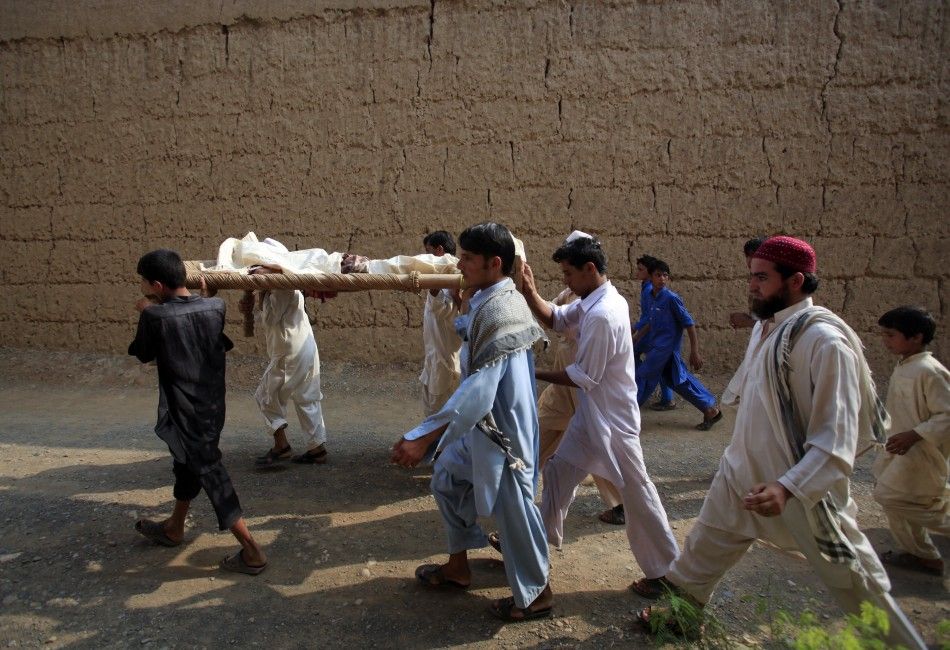Mosque Bomb Blast Toll Hits 51: Horrifying Photos
The death toll in one of the most deadliest suicide bomb attack at a crowded mosque in Pakistan's Khyber region, near Afghan border rose to 51 on Saturday, officials said.
The death toll has risen to 51 and 121 people were wounded, local government official Khalid Mumtaz Kundi told AFP.
Sixty-one of the wounded are still in hospital, Kundi said.
The attack left blood splattered all across the mosque's main hall and walls and destroyed the doors and windows of the building. Ball bearings used in the suicide vest were also scattered across the mosque, said an AFP reporter who was at the scene.
The attack is suspected to have been aimed at anti-Taliban elders who were praying at the mosque situated in Ghundi, a village in the Khyber tribal region. More than 300 people were present in the mosque. The area is considered too dangerous for non-local Pakistanis to visit, as it is known to be a route for non-lethal supplies heading to U.S. forces in Afghanistan.
Whoever did it in the holy month of Ramadan cannot be a Muslim, said Saleem Khan, who was present at the scene of explosion. It is the cruelest thing any Muslim would do, he said from his hospital bed in the main northwestern city of Peshawar, where he was being treated for his injuries, reported theadvertiser.com.
People ran over him in an attempt to escape the scene, he added.
All the evidence we have gathered confirms that it is a suicide attack, said Fazal Khan, a local official.
The attack has come across as a shocker, because it has been done on the holiest day of the week in the holiest month of the year for Muslims. During the holy month of Ramadan, observant Muslims fast during the day, involve in charitable affairs, and spend extra time in prayers and services.
The attack on the mosque is the deadliest since two suicide bombers blew themselves up outside a police training centre in a town about 30 kilometres north of Peshawar, killing 98 people on May 13.





© Copyright IBTimes 2025. All rights reserved.





















